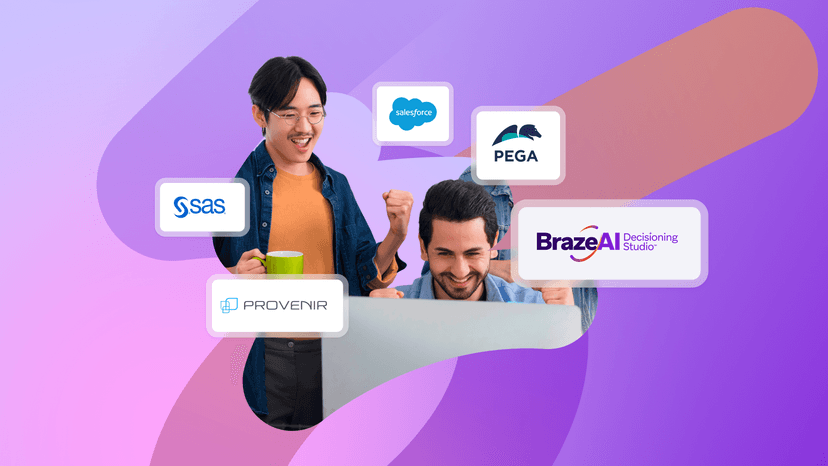Bulls, Cubs, and Bears! Oh My! Takeaways from Chicago's Mobile Venture Summit
Published on May 24, 2019/Last edited on May 24, 2019/5 min read


Zoë Lefeuvre
Product Marketing Manager at BrazeOn May 15th, Mobile Venture Summit held an intimate gathering of marketers focused on sharing mobile best practices in Chicago. The event included senior level marketers from Cars.com, Coca-Cola, Dunkin’, Expedia, and Walgreens plus Braze clients such as Grubhub and Citi. The event was limited to brands and partner only and was press- and agency- free, creating a safe space for brand and digital marketers to share learnings, best practices and challenges in an environment of peers.
Here are some takeaways from the day:
Consumer expectations continue to grow
In today’s landscape, brands aren’t just competing against the customer experiences in their own markets. They’re competing for consumers’ time, attention, and dollars against every brand that touches their lives. From retail to travel and booking to health and wellness, the proliferation of mobile and online brand relationships has raised the bar for what consumers expect from brands.
Cars.com recognized early on that expectations for how consumers shop was being defined outside of their market, with digital-first brands like Airbnb and Netflix creating experiences that allow for exploration about places and programming unlocking a world before commitment. Cars.com has tapped into this with their Car Match tool. Taking cues from apps such as Tinder and Rent the Runway which get to know you before matching you, they set up an interactive experience to dig deeper before presenting cars to customers, as they recognized that 70% of their customer base does not know which type of car they want when they start their journey. Similarly, Walgreen’s recognized early on that they had to bring the convenience of being at every corner to digital. They rose to the challenge being an early adopter of image recognition technology which allowed consumers to scan their prescriptions and reorder them from their device. Grubhub has also continued to exceed consumer expectations as they recognize that "hangry" (hungry + angry) customers have a poor LTV. They ensure that their customer messaging, powered by Braze, continues to exceed expectations by personalizing recommendations based on delivery address and keeping up with new payment features, such as Venmo, so you can split the delivery bill with friends.
Keep an eye on emerging technologies such as voice and AR
As the speaker from Expedia said best “[Our brands don’t] chase competitors, they chase technology.” When looking at technologies such as augmented reality (which took off in the consumer market with Pokemon Go), they focus on creating captivating and engaging experiences rather than competing with other online travel agencies (OTAs). They have started to capitalize on this by launching AR capabilities in their app featuring their long-time mascot, the Roaming Gnome. This application of AR allows users to augment their photos from around the world with the Roaming Gnome. The project has been a success, with The Roaming Gnome boasting over 250,000 Instagram and twitter followers alone. In a similar spirit, Coca-Cola has incorporated AR game within their app which allows users to interact with the polar bears that brand loyalists have become familiar from all the Coca-Cola campaigns.
With search being so important to discovery for brands like Walgreens, they are keeping their finger on the pulse of the next generation of search: voice. Users’ search habits will continue to evolve from “where is the nearest pharmacy?” to “where can I buy Zyrtec,” and Walgreens has to ensure they stay top of mind from text to voice searches.
Humanize your brand for far reaching results
In the spirit of localization, one of the panels featured three local major league teams: The Chicago Bulls, Bears, and Cubs. One thing many sports teams have in common is that they don’t own all their broadcast content. But they can’t let that stop them from evangelizing the brand through what they can control: the players. The Chicago Cubs, like other baseball teams, have the disadvantage of playing 162 games a season which is twice as long as basketball and 90% more than football players. This limits the time players have to build their brand, so the team makes a concerted effort to humanize the players through their youtube channels bringing in fans around the world, and adding a human element to America’s favorite pastime.
The NBA’s League Pass is also allowing the Bulls to humanize their sport. Global access to the games through this app has allowed brands to see the reach of specific teams and players beyond the 150 mile monetization zone from their stadium. This has allowed fans in Finland to feel connected with the Bulls most popular player, Finnish native Lauri Markkanen. The NBA has also become one of the most popular sports accounts on WeChat, the largest networking site in China.
Anything else?
Overall, spending the day in Chicago with fellow marketers was a great way to get a behind the scenes look at some wins and futurist thoughts top of mind with the top brands in the city. It comes as no surprise that brands should continue to investigate innovative technologies to meet the ever-growing demands of their customers.
Related Tags
Be Absolutely Engaging.™
Sign up for regular updates from Braze.
Related Content
 Article16 min read
Article16 min readChoosing the best AI decisioning platforms for 2026 (across industries)
February 12, 2026 Article3 min read
Article3 min read2.4+ billion sends, zero fumbles: How Braze supports leading brands during the big game
February 09, 2026 Article4 min read
Article4 min readBeyond Predictions: Why Your Personalization Strategy Needs an AI Decisioning Agent
February 09, 2026